
This week marks the 14th anniversary of the tragic X Case, an event that, more than any other in recent times, forced Ireland to look long and hard at itself and ask what kind of country we were and what kind of country we wanted to be. The profound effect that this case had on our legal, constitutional and social systems is still not resolved to this day.
On 11th February, 1992, it emerged that the Attorney General, Harry Whelehan, had placed a High Court injunction on a 14 year old rape victim from travelling to the UK for an abortion. Abortion, as well as travelling for one and procuring information on the procedure, was illegal due to the disastrous Pro Life Amendment that was placed in the Irish Constitution in 1983. This reads as follows:
"The state acknowledges the right to life of the unborn and, with due regard to the equal right to life of the mother, guarantees in its laws to respect, and, as far as practicable, by its laws to defend and vindicate that right"
The young girl, X, had been raped by a trusted neighbour. Her parents had contacted the Gardai with a query about DNA evidence and so, the gardai had to report the family's intentions to the authorities.
The case grew more complicated as it emerged that X had vowed to kill herself if forced to carry on with the pregnancy - and in doing so highlighted the constitutional ambiguity regarding the health and life of the mother.
When the story broke, there was an unprecedented outcry. National and international news coverage was shocked that a modern country in the 1990s would act so callously towards a teenage rape victim. Martyn Turner published a cartoon in The Irish Times, reprinted the world over, that prefectly summed up the issue. The picture depicted a little girl holding a teddy bear, standing in a shape of Ireland as seen on maps, but with the whole island enclosed by barbed wire. The caption read: '17th February 1992: Internment in Ireland introduced for 14 year old girls'.
Mary Robinson sidestepped the institutional gag that precludes the President from saying anything political by stating that it was a time when the country would have to do some deep soul searching. Journalist Mary Holland and singer Sinead O'Connor came out and admitted that they had had abortions and called on the students of Ireland to take to the streets in protest against the High Court Order. Thousands of people attended a protest march in Dublin on Saturday 20th February.
The Supreme Court overturned the High Court decision by 3:2. The Court ruled that termination was legal where there was a proven threat to the life, as opposed to the health of the mother. X's threat of suicide meant that her life would be only saved by having an abortion.
The injunction was lifted and the family travelled to Manchester for the procedure. However, the girl miscarried naturally before it could take place.
Albert Reynolds had replaced Charlie Haughey as Taoiseach just one day before the X Case broke. The case was a source of huge national and international embarrassment and shame to the government and, in fact, the State was paying the legal costs for the X family in their challenge to overturn a State decision!
Three referenda were held as a response to the X Case. The Reynolds-O'Malley Fianna Fáil/PD government collapsed in acrimonious circumstances in November 1992 so the one polling day was chosen for the referenda and the national election. The electorate voted for the first two clauses - making it legal to travel for an abortion and legal to obtain information on the procedure. However, the 'substantive issue' was rejected. This sought to remove the threat of suicide as grounds for an abortion on Irish soil. The X Case Supreme Court interpretation stands to this day (in conflict with the Pro Life Amendment). An enormously unpopular, confusing and ultimately unsuccessful referendum was held in 2002 to again overturn the X Case ruling.
No government party since 2002 has committed to resolving the issues raised by the X Case. Abortion is the one issue that this country has never properly come to grips with. Instead, we bury our heads in the sand and close our eyes and ears to the 6,000 Irish women who travel to the UK every year for an abortion.
Like the majority of Irish people, I find it extremely difficult, if not impossible, to come down on one side in favour or against abortion. What we do know is that the X Case was not an isolated incident - literally, in fact, since our joke of a legal system had the rapist at the centre of the X Case back on the streets within 3 years, driving a taxi and attacking more girls.
The X Case struck right at the soul of modern Ireland. I've argued in the past that modern, Celtic Tiger Ireland was born in 1990 when the election of Mary Robinson marked a significant revolt against tradition and orthodoxy. The feel-good factor from Italia '90 pre-empted the change in the country's mood. The national finances finally seemed to be getting in order and the economy was on the upturn. At the 1994 Eurovision in Dublin, Riverdance was unleashed as a perfect symbol for the new, economically-miraculous Ireland: cool (at the time!), sexy, energetic - and with Americans at the helm!! At that same event, the winning song 'Rock and Roll Kids' seemed to say goodbye to the miserable past just as Flatley et all were high-kicking us into the future.
But the Ireland-born-in-1990 argument means that this country is now a teenager - a not too-unsuitable analogy when you consider our immature attitudes to alcohol, sex and responsibility in general. Modern Ireland was an infant in 1992, making it even more ironic that the incident that made us grow up was one involving a baby. The new Ireland responded with compassion and sincerity to X's plight - and ensured that the country would not decend into the horrible culture war of the 1980s over the issue.
But the X Case continues to haunt us to this day. The issues it raised remain unresolved. It's the quintessential 'Irish solution to an Irish problem'. There can be no doubt that we have come a long way on social issues like divorce, contraception and homosexuality. The real test for our young nation will be when we finally try and get to the bottom of our number one social and cultural taboo. It won't be easy - but, then again, growing up never is.
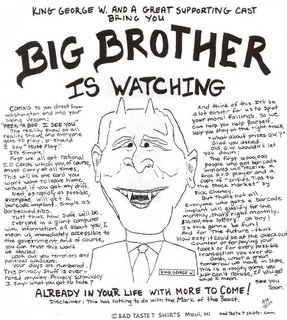



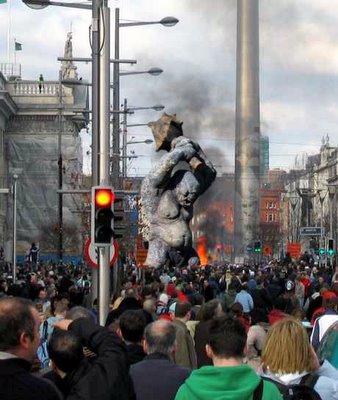
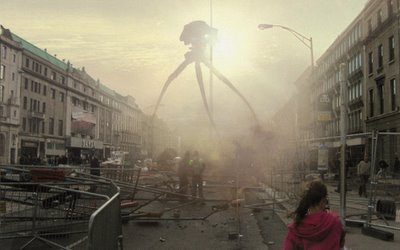
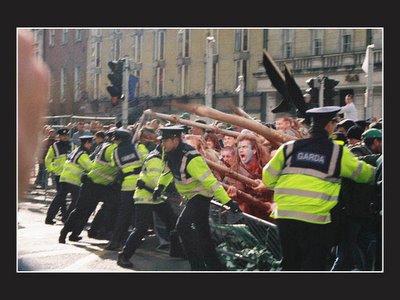

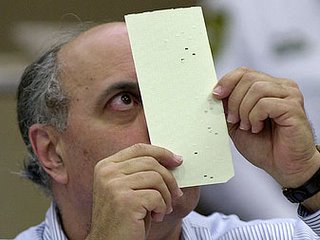



 ‘The Tonight Show with Jay Leno,’ NBC
‘The Tonight Show with Jay Leno,’ NBC 






